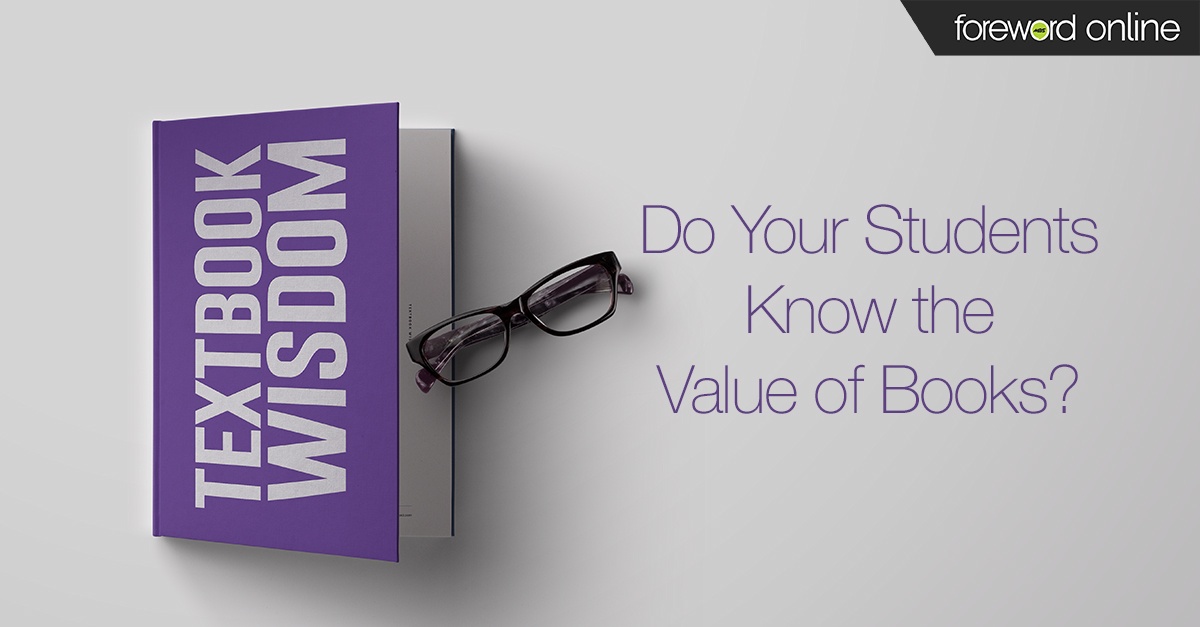Looking back, the things I told students about the value of books were way too abstract. When I was a teacher, I didn’t realize that the cost of course materials had soared in recent years. I didn’t know many students opted out of buying required books altogether. I thought they simply believed they could do well in an English class without reading — and I had all kinds of theories about why they dismissed reading assigned literature as unimportant. In some ways, I might have been right, but, in others, I was flat-out wrong.
The phenomenon was a perennial frustration: No matter how often I told students about the need to bring the required book to class, many looked dumbfounded when I scolded them the next day for arriving sans book. When those students — after repeated infractions — heard that the lack of preparation would badly affect their grade, they sputtered, wide-eyed and disbelieving, “But … “
They really did need their books. By way of class discussion, I aimed to teach students how to use the text as evidence for interpretations of a story or creative essay. Thus, if we were studying Flannery O’ Connor’s classic story A Good Man Is Hard to Find, I might pose a guiding interpretive question like, “Why, according to the text, is a good man hard to find?”
You could easily find evidence to support several valid answers to this the question. You could point out that the main character, the grandmother, cannot see goodness in others until she experiences a violent epiphany that triggers compassion for her murderer, the Misfit. You could say the story invites us into a world in which there are no good men at all. The list goes on. The rule of thumb for the students was that the answers were only valid when you could use the text to support them.
Within a discussion like this, an answer like, “Well, this story is totally unrealistic. My grandmother isn’t like that at all,” would be unacceptable. In another context, it might be true, but, because O’Connor’s tale does not depict any particular student’s specific grandmother, it would be impossible to find evidence about her grandmother in the text.
This kind of reading and discussion compels students to point out areas of the text that support their interpretation — paraphrase and quote for the class. In order to participate, you must have a copy of the book on-hand. You can’t borrow someone’s notes. You can’t read a Wikipedia article and get the gist. You can’t expect the teacher to tell you what you’re supposed to understand about the text.
I could explain this to students until I was breathless, but I still found some who protested. To me, it seemed like no one had ever explained the value of a book to them. It seemed like they were taught to see reading as a passive activity rather than a learning experience, which can be as rewarding as the effort you put into it.
Maybe. It’s true that reading comprehension sections on standardized tests do little, if nothing, to predict a student’s college success. It’s true they do nothing to encourage active, deep reading. It’s also true that, when students are trained to read excerpts instead of complete texts, they might, understandably, form the impression that you don’t really need a book. Fragments are more than enough.
However, it embarrasses me now to realize that something much more practical also affected their view: Books cost a lot. Even the paperback anthologies I selected for courses are highly priced. If you’re not accustomed to relying on books for wisdom, expertise, guidance and information, then most course materials are going to seem outrageously overpriced.
I’m not suggesting that teachers should nix course materials from their curriculum. Books remain a critical part of the learning process. Instead, I think college instructors need to have frank, practical conversations about what their books are worth.
Rick Horner, a manager at Delaware Valley University store, hears a lot of complaints from students about the cost of books. He told me this.
“I don’t know that every student understands the value of course materials. I think it’s important for somebody to take students under their wing and explain that just passing a course isn’t what college is for. Becoming truly proficient in things requires a deeper dive. I think we as a society have become so price-conscious that we’re forgetting the value of what we’re in school for. I think that’s an important wave that needs to come crashing into the rocks now.”
It can be hard to quantify the true value of an excellent book — especially for those who love reading. It can be like trying to measure the value of a good friend. But for students, especially those new to college, those price tags need an explanation. If you want to avoid the mistakes I made, here’s my advice: When you discuss the importance of the course materials with students, put it in concrete terms. Meet them where they are.
Explain that purchasing the book is like buying a second teacher for the course. You can tell them the knowledge and wisdom in the text will enrich their lives. They might even believe you. But “enrichment” might seem also seem a little abstract — at best. It might also sound ridiculous. Make it clear how owning the book will help their grade, which, in turn, will help them graduate on time. And do your best to choose materials they can sell back when your class is done.






